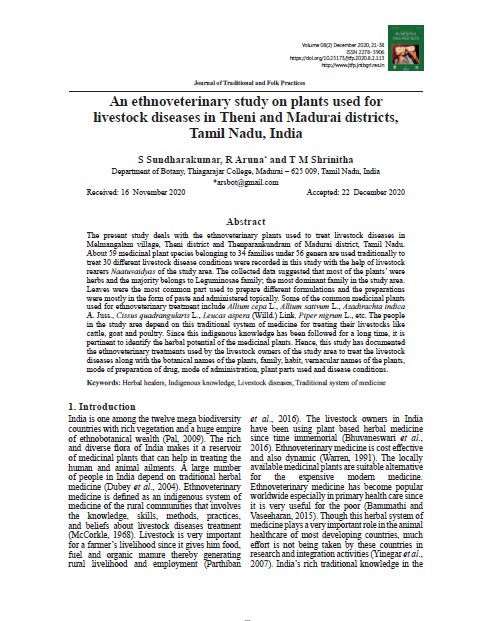An ethnoveterinary study on plants used for livestock diseases in Theni and Madurai districts, Tamil Nadu, India
Keywords:
Herbal healers, Indigenous knowledge, Livestock diseases, Traditional system of medicineAbstract
The present study deals with the ethnoveterinary plants used to treat livestock diseases in Melmangalam village, Theni district and Thenparankundram of Madurai district, Tamil Nadu. About 59 medicinal plant species belonging to 34 families under 56 genera are used traditionally to treat 30 different livestock disease conditions were recorded in this study with the help of livestock rearers Naatuvaidyas of the study area. The collected data suggested that most of the plants’ were herbs and the majority belongs to Leguminosae family; the most dominant family in the study area. Leaves were the most common part used to prepare different formulations and the preparations were mostly in the form of paste and administered topically. Some of the common medicinal plants used for ethnoveterinary treatment include Allium cepa L., Allium sativum L., Azadirachta indica A. Juss., Cissus quadrangularis L., Leucas aspera (Willd.) Link, Piper nigrum L., etc. The people in the study area depend on this traditional system of medicine for treating their livestocks like cattle, goat and poultry. Since this indigenous knowledge has been followed for a long time, it is pertinent to identify the herbal potential of the medicinal plants. Hence, this study has documented the ethnoveterinary treatments used by the livestock owners of the study area to treat the livestock diseases along with the botanical names of the plants, family, habit, vernacular names of the plants, mode of preparation of drug, mode of administration, plant parts used and disease conditions


